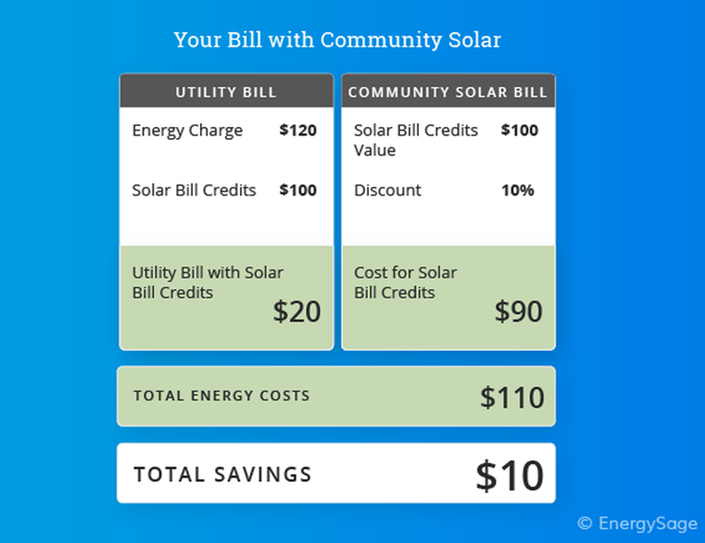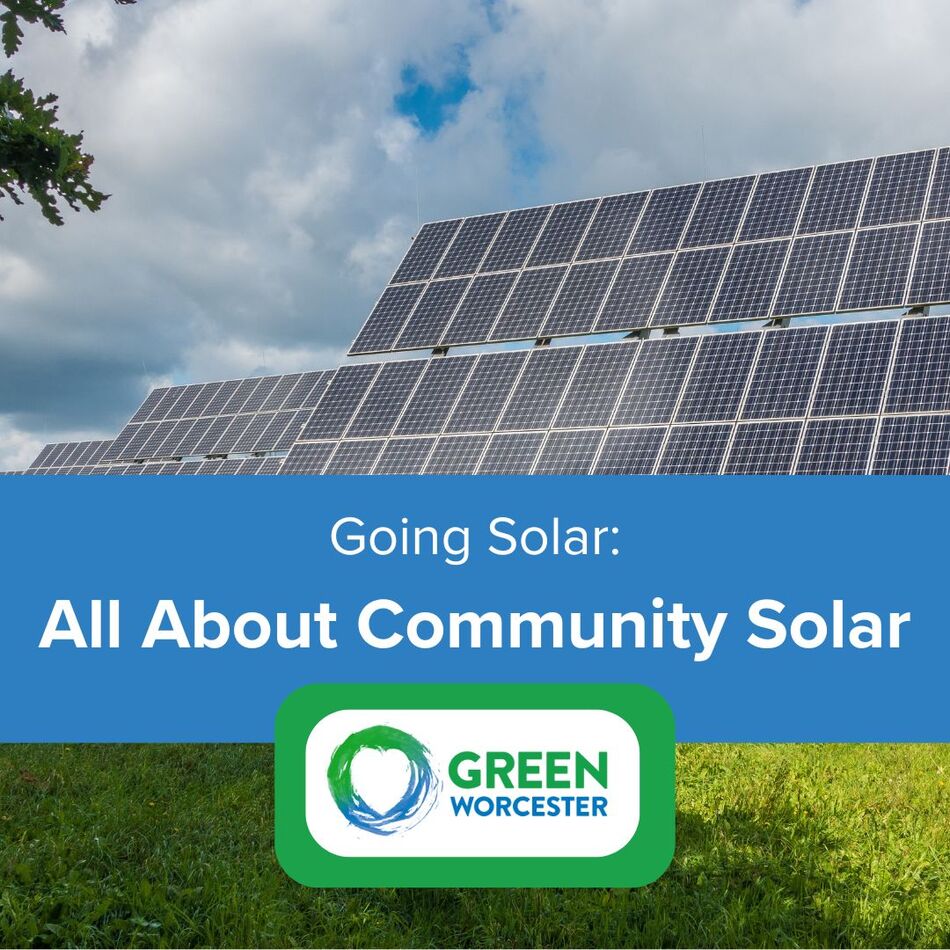Many people want to reap the benefits of going solar (savings, supporting renewable energy, etc.) but they either rent or don’t have a home suitable for solar. If you fall into this category and want to lower your electric bills, while supporting the development of local, renewable energy, look no further! When you subscribe to a community solar project, you’ll receive credits on your monthly electric bill for the energy generated by your share of the project.
Here’s how it works:
- Search and compare community solar projects near you (they must be located in your electric utility’s service territory).
- Choose a project and subscribe.
- Your solar farm generates emission-free electricity, and utility companies distribute this electricity throughout the grid.
- Your utility company applies solar credits to your monthly electric bill, reducing what you pay the utility.
- Your community solar provider will send you a separate bill, which charges you for the solar credits at a discount.

So, why should you sign up for community solar?
- Savings on your electric bills: Most people who sign up for community solar save between 5-15% on their annual electricity costs. Income-eligible participants often qualify for greater savings and can save as much as 25% on their electricity bill.
- Great for renters and homeowners: Perfect for renters or homeowners who can’t have or don’t want solar panels on the roof.
- Benefits the environment and local economy: Solar farms help green the electrical grid by generating emission-free electricity. Community Solar projects are typically built within the utility area they service and employ local community members to develop and maintain them.
To be eligible for community solar, you’ll need to make sure there are open projects in your area, and, in some cases, you’ll need to meet the project’s credit score requirements.
To explore what’s available in your area, check out EnergySage’s Community Solar Marketplace where you can browse, compare, and sign up for community solar projects near you.
If you think rooftop solar is a better fit for you, check out this blog post!
Previous Post
Four Considerations Before Going Solar
Next Post
Sustainable Back-to-School: Smart Choices for a Greener Year


